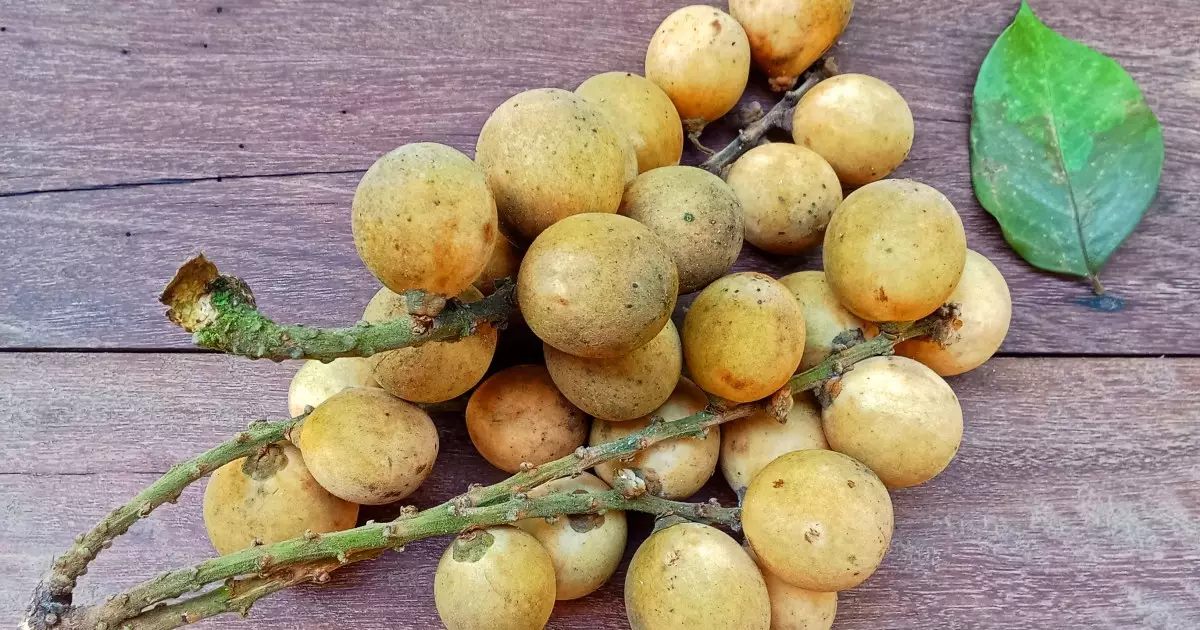Lanzones, sometimes referred to as langsat or longkangare, are intriguing fruits originating from Southeast Asia. Their tropical allure is undeniable, with a taste that balances sweetness and a hint of tartness. However, if you’re pondering whether this exotic fruit could double as a special treat for your furry companion, the answer is a resounding no. Despite their captivating flavor, lanzones can pose significant health risks for dogs that far outweigh any benefits.
The Risks Lurking Within
At the heart of the danger lies the fruit’s seeds, which contain toxic compounds that can lead to cyanide poisoning. While the flesh of the lanzones is often thought to be harmless, the seeds are an entirely different story, and their striking similarity in color to the fruit’s edible part makes them dangerously deceptive. Unlike more commonly known fruits where risks are more clear-cut — think apples with easily removable seeds or peaches with distinct pits — lanzones are trickier. The seeds are small and blend seamlessly with the flesh, posing a risk of accidental ingestion.
Considering the consequences of this potential misstep, it becomes clear why offering lanzones to dogs is fraught with risk. While some anecdotes suggest that the flesh itself may be safe, the truth remains that reliable scientific backing is sorely lacking. The stakes are too high when it comes to your precious pet’s health to navigate this uncertainty lightly.
The Comparing Fruit: Grapes and Their Dangers
When discussing the safety of lanzones for dogs, one can’t help but draw comparisons to grapes — another seemingly innocuous fruit notorious for its toxicity to canines. Just as grape seeds can harbor toxins, so too can the seeds of lanzones, leading to the same grave concerns regarding cyanide levels. If a fruit bears resemblances to grapes (especially in terms of toxicity), it should raise a red flag for pet owners. Concerns escalate when we consider the ramifications of cyanide poisoning, which can manifest swiftly and severely.
If your dog faces potential exposure to any toxic substances, understanding the signs of poisoning is crucial. Symptoms can appear rapidly, ranging from excessive drooling to difficulty breathing and even seizures. With this information, the notion of experimenting with lanzones as a possible snack for your dog becomes increasingly ill-advised.
Seeking Veterinary Guidance: A Non-Negotiable Step
The absence of comprehensive research on lanzones and canine consumption only amplifies the importance of consulting your veterinarian. If you ever find your curious canine digging into a lanzone, don’t hesitate to seek professional advice. For small dog breeds, a single taste could necessitate immediate veterinary intervention, while larger breeds might seem less affected but still require close monitoring.
Pet owners should never err on the side of complacency with their dog’s health. In matters of potential toxicity, the well-being of your furry friend should always reign supreme. A hasty assumption about the safety of a fruit can result in devastating consequences, underscoring the need for vigilance and immediate action if your dog consumes something questionable.
Recognizing Allergic Reactions: A Different Concern
Beyond the risk of cyanide poisoning, lanzones can also trigger allergic reactions in dogs. Symptoms ranging from rashes to inflammation in your dog’s mouth can manifest, requiring prompt veterinary attention. Being able to discern between toxic and allergic reactions is critical for responsible pet ownership.
If you notice your dog exhibiting unusual signs after tasting this exotic fruit, swift intervention is key. Understanding these reactions can make all the difference in effectively addressing your pet’s condition.
In essence, while dogs possess an inherent curiosity that may lead them toward exotic treats like lanzones, it’s crucial for pet owners to actively educate themselves about these potential dangers. With the right knowledge and a willingness to prioritize safety, you can ensure your beloved canine avoids the pitfalls of indulging in this alluring, yet hazardous fruit.

